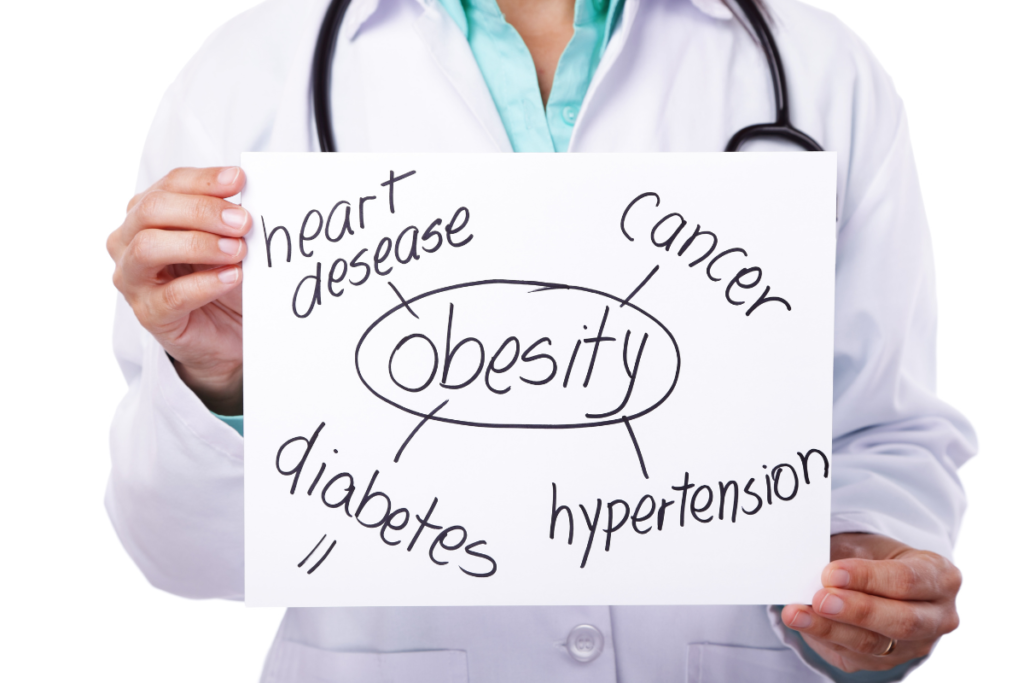Understanding the Link Between Obesity and Cancer: A Comprehensive Guide
Introduction
Overweight, now considered as an international epidemic, is associated with many chronic diseases and conditions, one of them being cancer. Knowledge of this link is useful in the prevention of both obesity as well as the various related diseases. In this article, we will provide you with all the necessary information about the connection between obesity and cancer, including the detailed analysis of the pathological processes, risk factors, and measures for prevention.
The Obesity Epidemic: An Emerging Problem
Overweight and obesity are affecting a large proportion of the population in the developed world and recently in the developing countries as well, with serious consequences for the health of all citizens. Today’s WHO reports that obesity prevalence has nearly trebled since 1975. This has often been linked to higher dangers of contracting different styles of cancer and several other illnesses.
Explanation of How Obesity Leads to Cancer
Hormonal Changes
Obesity also has an effect on the hormonal balance and changes insulin and estrogen levels that in turn stimulate cancer development. High levels of insulin that are observed in obese people can increase the rate of cell divisions. Likewise, the body fat (adipose tissue) synthesizes too much estrogen, which is responsible for breast and endometrium cancers.
Chronic Inflammation
Obesity leads to inflammation and carcinogenic changes in the DNA of cells and therefore leads to cancer. Adipose tissue secretes inflammatory cytokines and contributes to the formation of the cancer promoting milieu.
Insulin Resistance
Insulin resistance is another effect of obesity; cells in an obese individual’s body do not respond effectively to insulin. They also increase the level of insulin and the insulin like growth factors in the blood hence encouraging the growth of tumor cells.
Effects on the immune system
Obesity causes a decrease in the immune response and thus it cannot easily identify cancerous cells for destruction. This weakened immune response is detrimental in the sense that it leads to the progression of cancer.
Cancer that is associated with obesity
Breast Cancer
Obese women who are past the age of fifty have the highest risk of breast cancer. One of the causes of this risk is that estrogen is produced in increased quantities from adipose tissues.
Colorectal Cancer
Diet is another factor that has been identified to increase the chances of developing colorectal cancer for instance obesity. The steps include insulin resistance, chronic inflammation, and changes in gut bacteria.
Endometrial Cancer
Being overweight or obese raises the risk of endometrial cancer. The main cause is that abundant estrogen secreted by adipose tissue raises the risk of these diseases.
Esophageal Cancer
Overweight and especially abdominal obesity is associated with heightened chances of getting esophageal adenocarcinoma. Which is acidity as well as inflammation of the oesophagus.
Kidney Cancer
There are various types of renal cancer but the commonest is the Renal Cell Carcinoma and studies have shown that people with overweight condition are at higher risk of developing this disease. The precise details are yet to be determined but some of the ways are hormonal fluctuations and inflammation.
Read Also : The Best Body Fat Reducer in Your Kitchen
Prevention and Management Strategies
Maintaining a Healthy Weight
Modesty in weight is very important in the fight against cancer since it helps in avoiding high-risk situations. This include taking balanced diet, engaging in regular physical activities and changing some of the behaviors.
Dietary Choices
It is recommended that an individual take foods that contain fruits, vegetables, whole grains, and lean proteins to enhance weight control and avoid cancer. Reducing the intake of processed foods, red meats and sugary drinks is also healthy.
Regular Physical Activity
Physical activity also ensures that one does not gain excess weight and this cuts the risk of contracting different types of cancer. It is recommended that one should be at least thirty minutes of moderate intensity exercise a day, or 150 minutes in a week.
Medical Interventions
In some cases, people suffering from obesity must undergo medications or bariatric surgery, which is common among patients with the mentioned disease. Both of these options should be pointed out to a healthcare provider.
Regular Screening and Monitoring
Cancer tests and follow ups have to be taken often and it is recommended for people with obesity. If the condition is diagnosed before it advances it is much easier to treat it.
Conclusion
The present review work is vital as it helps in explaining the relationship between obesity and cancer to implement effective prevention and control measures. Thus, a healthy weight, a proper diet, and a healthy lifestyle mean that people can lower the risk of developing cancer and boost their health.
Disclaimer: This article is intended for informational and educational purposes only. The content provided on this page is not meant to replace professional medical advice, diagnosis, or treatment. Always seek the advice of your physician or other qualified health provider with any questions you may have regarding a medical condition or dietary needs. Reliance on any information provided here is solely at your own risk.






